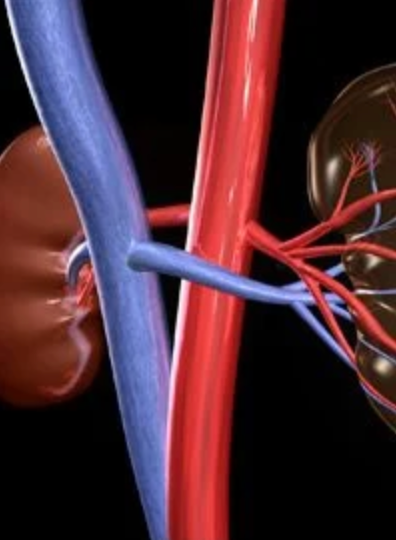KidneyCAN 2020 Touts Power of Translational Research in Advancing RCC Field
The 2020 Kidney Cancer Research Summit (KidneyCAN) featured several healthcare experts who highlighted the latest clinical developments, critical preclinical efforts, and translational research being performed to move the needle forward in the field of kidney cancer.

The 2020 Kidney Cancer Research Summit (KidneyCAN) featured several healthcare experts who highlighted the latest clinical developments, critical preclinical efforts, and translational research being performed to move the needle forward in the field of kidney cancer.1
“Many good clinical cancer meetings are out there, such as ASCO, ESMO, and AACR, but we were informed by several [healthcare professionals] that no one is talking to the basic and translational research group,” Bryan Lewis, president of KidneyCAN told OncLive in an interview. “[With these meetings], we’re trying to break down silos and offer a different perspective to those [working in the field to help them to] think outside of the box a bit.”
This year's meeting utilized a virtual format and focused primarily on translational efforts, as well as new directions for research. A highlight of the meeting, according to Lewis, was the Keynote address delivered by Nobel Laureate William G. Kaelin Jr, MD, who is a researcher at Dana-Farber Cancer Institute, Sidney Farber Professor of Medicine at Harvard Medical School, and investigator at Howard Hughes Medical Institute, which focused on whether further examination of the VHL gene can lead to combination therapies with curative potential in kidney cancer.
Another key area of discussion focused on molecular targets in kidney cancer, such as MESH1, TBK1 in tumors with VHL loss, IDFR1 in MTAP-deficient disease, and BAP1 in the regulation of glucose dependency in RCC. Moreover, several talks were dedicated to emerging biomarkers in kidney cancer, ranging from host immune signatures as therapy response biomarkers to circulating-free methylation DNA as a prognostic biomarker for recurrent disease, to biomarkers of immunotherapy. Expert speakers also shed light on the next generation of immunotherapies, which included targeted pro-inflammatory prodrugs, oncolytic single-cycle replicating agents, and personalized T-cell approaches.
Hans Hammers, MD, PhD, KidneyCan co-chair and associate professor of Internal Medicine in the Division of Hematology-Oncology at the University of Texas Southwestern Medical Center, delivered the presentation on pro-inflammatory prodrugs for immunotherapy in kidney cancer.
“[With this research] we are going after 2 different surface markers of kidney cancer; 1 is CA9, which a very well-established marker, and the other is prostate-specific membrane antigen, which is less well known but particularly interesting,” Hammers told OncLive in an interview. “The Departmen of Defense allows us to make some of these prodrug molecules, test them in vitro, and put them into animals to see whether there is something interesting going on. The way that we design these molecules take components that have pretty much already been in patients. As such, those molecules could be very translational and hopefully be moved into the clinic at some point.”
In 2019, the KidneyCAN meeting was relatively small, with approximately 130 attendees registered to attend in Philadelphia, Pennsylvania, according to Hammers. Although the format of this year’s meeting changed in light of the 2019 coronavirus disease pandemic, this adaptation may have led to some unexpected benefits.
“[This year], we had 850 people register from 37 different countries. We really have grown quite a bit,” said Hammers. “It's a vibrant community. Basic, translational, and clinical scientists [are working together] to advance care and eventually cure kidney cancer.”
Lewis added that although there is no replacement for face-to-face interaction, the virtual meeting was convenient for attendees. “There’s some silver lining here,” Lewis admitted. “We had a maximum of 200 [attendees] who were going to travel from all over the place to get to Philadelphia. Instead, we had twice as many people from across the globe. Essentially, the paradigm shifted.”
Building off of last year's event, thought leaders, clinicians, researchers, research advocates, scientists, and medical oncologists came together to collaborate and discuss important research efforts being made. The event's primary goal was to accelerate progress through the discussion of new research, unmet needs, and available resources.
“With this meeting, an early career investigator model is being set up. Young people, right out of medical school or their fellowships, are [connected with leaders in the space] who have made a career for themselves,” noted Lewis. “Those who may not be stars in the clinic and are more comfortable in the laboratory setting see that there’s an opportunity [for a fruitful] career in this space.”
The meeting is a collaboration between KidneyCAN and its supporting physicians.
“KidneyCAN is run and was founded by people touched by kidney cancer, so they have a very strong interest in succeeding, collaborating, and working together,” Hammers concluded. “I think [the meeting captures] the spirit of bringing people together from different fields to achieve something bigger than we could do by ourselves.”
Reference
KidneyCan is proud to host the 2nd annual #KCRS20, a meeting for global stakeholders in kidney cancer research. Kidney Cancer Research Summit. Accessed November 3, 2020. https://kcrs.kidneycan.org/about/.



